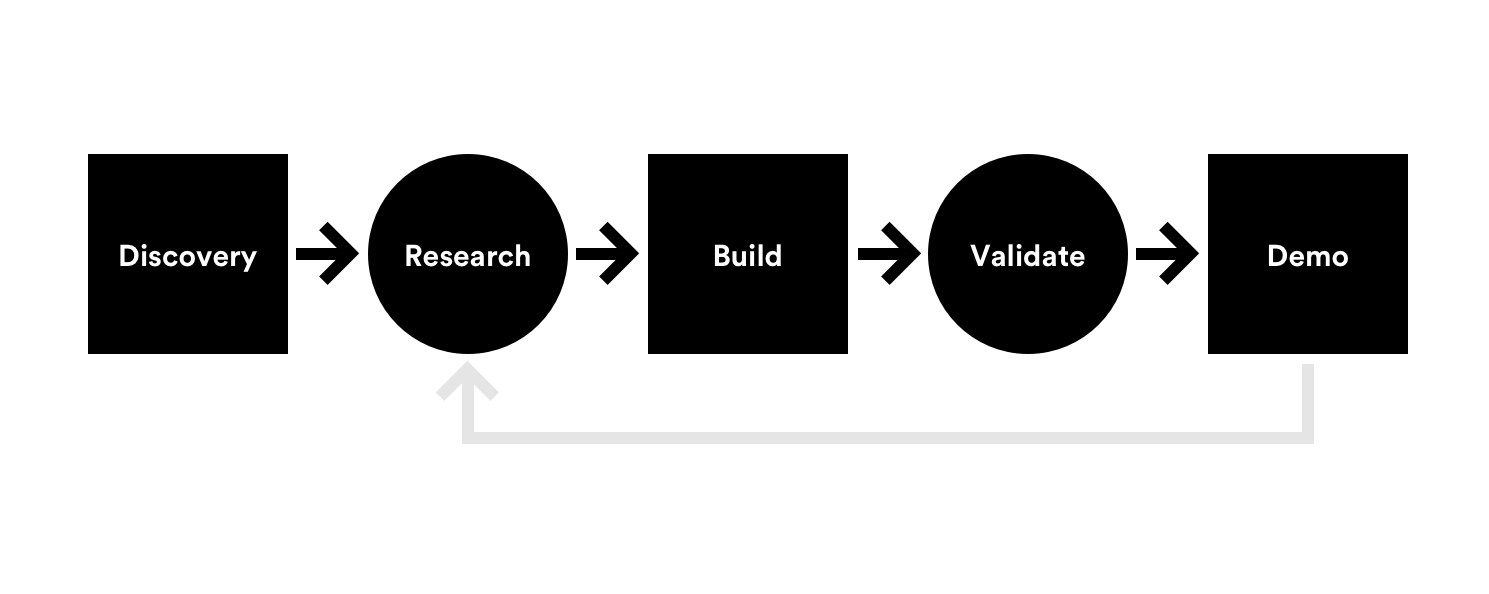
Iterative and Incremental Development: How to Be a Successful Partner
Business ideas are exciting because we can see that they have the potential to make great change. The problem is when you don’t know if that idea is realistically, technically… possible. The good news is that there are concrete ways to figure out if your great idea is viable with iterative and incremental development methods.
At Detroit Labs, we work with clients to create a Proof of Technology to do just that. We conduct introductory research that can save time and money, providing clients with actionable data to make an argument — to leadership or investors — for change.

No matter how simple or complex your product idea is, If you’re going to test whether your idea is possible, the feedback loop needs to be small. Working in an iterative way involves implementing, testing, documenting, and evaluating. Each iteration is used as a learning step along the way to inform the next.
In this process, there is a rapid and frequent demo cycle which not everyone is used to. In our experience, these two habits set teams, both client and candidate, up for success:
Informed decision-makers
During project demos, it’s important to have someone who is well versed in the business side as well as the technical side of your company. The iteration loop is so tight that a delay of a few days can really offset a schedule. Putting our project in the hands of someone who knows the project and knows what we’re talking about is crucial.
Useful feedback
Your feedback becomes our guiding principle, so giving specific feedback, contextualized within the limitations, is critical. To be more specific, consider the “feeling” or the experience. If your product is meant to simulate something in real life, does it “feel” like it? If not, how could changes make it so? If we discuss possible compromises to work past given constraints, what compromises can we live with and what is set in stone? Hearing your thought process is also helpful as we progress.